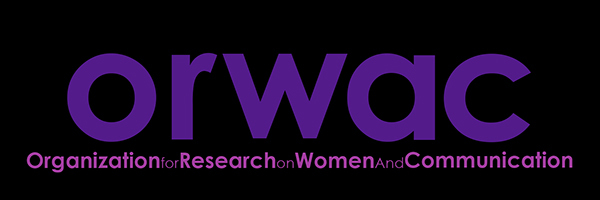07/18/2019
Ask the Oracle
“She Helped Me Find My Home in the Discipline”: The Power of Feminist Generational Mentorship in the Field of Communication
Featuring Narratives from Dr. Heather Canary, San Diego State University, Dr. Tiffany Dykstra-DeVette, San Diego State University, Dr. Patricia Geist-Martin, San Diego State University, and Dr. Kendra Rivera, California State University San Marcos,
By: Danielle C. Biss, Master’s Candidate, San Diego State University
Two years ago, I began the journey of applying to graduate programs. Finding the right program for me was daunting from the start; from conversations with faculty and graduate students, exploring research areas and 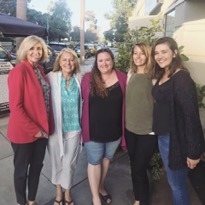
methodological approaches, funding opportunities, and seminar options, amongst other important information. I found my way to San Diego State University (SDSU), guided by mentoring from Dr. Kendra Rivera, who had been mentored by Dr. Patricia Geist-Martin. There at SDSU, serendipity matched me with Dr. Tiffany Dykstra-DeVette as my temporary advisor, who now has become my mentor and chair of my thesis on organizational tensions that restrict d/Deaf survivors of sexual violence from receiving access to services at an anti-violence non-profit organization. Reaching out to Dr. Geist-Martin, she too become a mentor and thesis committee member. SDSU became a wealth of mentoring for me as sought advice and mentoring from Dr. Heather Canary, the Director of the School of Communication. The full circle of mentoring for me was complete when I learned that Dr. Dykstra-DeVette was mentored by Dr. Rivera in her master’s program and Dr. Heather Canary in her Ph.D. program. In this “Ask the Oracle,” I inquired about these four mentors’ experiences being women in academia and the role feminist mentorship played in their respective careers.
In the early 1980’s, as she was beginning her Ph.D., Patricia found a strong mentor in Dr. Linda Putnam, who served on her dissertation committee and co-authored a conference paper and publication. “Linda was so good 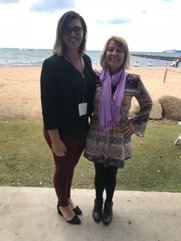
to me in so many ways,” Patricia shared. Her advice and support filled both my professional and personal needs as we co-authored and invested in each other’s personal lives. Dr. Putnam was commonly known as “a savior for the female graduate students,” since, at the time, communication was a male-dominated field and women’s voices were often suppressed in the field, which is the very reason Women’s Studies in Communicationwas founded in 1977. From Dr. Putnam, Patricia learned that “if you love your work, it becomes a part of who you are” and helps you focus on research that matters and impacts the greater community. Patricia’s research has a blended focus on health and organizational communication, particularly in the area of integrative medicine. She has conducted research on holistic and integrative medicine in Hawaii, Cuba, Guatemala, Mexico, Costa Rica, and in San Diego. Her research examines narratives and the process of negotiating identity, voice, ideology, & control in organizations, particularly in health and illness. She has mentored over 100 graduate students, including myself. Taking my first qualitative course with Patricia taught me how to fall in love with a whole new methodology. She exposed me to the possibilities of connecting with others over shared lived experiences, traumas, and the value of spending late nights and far too early of mornings transcribing interviews. Whenever I doubted my capabilities as a qualitative researcher, Patricia continuously encourages me to trust the process and know that I am capable. I’ll forever treasure the moments we shared together crying in her office empowering one another to continue to pursue research on sexual violence and harassment amidst the Ford-Kavanaugh hearings. As Patricia looks toward her retirement in the coming few years, she leaves a legacy of feminist mentoring with her numerous awards for teaching feminist scholarship and mentoring and generations of mentees to follow.
In 1989, Heather completed her master’s in communication from CSU Fullerton. After stepping away from the field to work and start a family, Heather returned to school in 2003 to pursue her Ph.D. at Arizona State University, where she was advised by Dr. Robert McPhee. During her time at Arizona State University, she and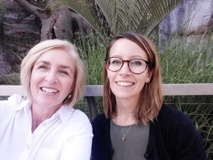
Kendra got to know each other through their common interests in organizational communication. She remembers being mentored with more laissez faire mentoring styles, and yearned for a future to center emotionalityas a factor in writing for her own mentees. In her second assistant professor position, at the University of Utah, she found a female colleague mentor, Dr. Anne Darling. For Emily Beach, who earned her M.A. from SDSU, Heather served as one her first female mentors. Emily shares, “Dr. Canary gave me so much more than just academic pointers for my research (which she also did a ton of)—she helped me figure out the unwritten rules, introduced me to other scholars, and was always in my corner. I never doubted I had someone cheering me on during my wins, and there to pick me up during low points. I’m so grateful for her mentorship.” As Director of our graduate program, Heather serves to me as the embodiment of what strong feminist leadership looks like. Conversations with her about her passion for leadership encouraged me to nominate myself for my leadership position within ORWAC. In addition, like Patricia, Heather too is a pioneer in applied organizational communication research. Much of her work is community-centered, providing opportunities to collaborate with community partners and large research groups. For instance, some of her policy communication research has focused on elementary schools, in order to implement better policy for special education programing, assist parents of children with disabilities in health care settings, and to implement better policy that helps facilitate coordinated care for children with disabilities and chronic health concerns. With a passion for leadership and equity in organizations, Heather inspires her mentees to come to find their own opportunities to participate in community-engaged research and prioritize helping to others.
Kendra began her master’s program at the School of Communication at SDSU in 2004. As a single mom, Kendra faced unique challenges during her graduate education, but she also found much joy in both her career mentors and peer mentors. Her thesis advisor, Patricia, served as one-part academic mentor and one-part work-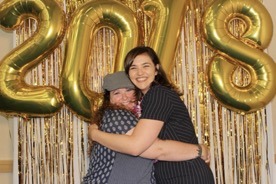
life coach. “Patricia lived the kind of academic life I wanted to have, and she taught me how to take care of myself as well as to embrace my emotion within my research and teaching.” She found additional help from the peer group that Patricia established and also developed a passion for qualitative research after taking Patricia’s “Gendering Organizational Communication” graduate seminar – a class that she also encouraged meto take and which ignited my passion for qualitative research. With Patricia’s mentorship, Kendra began presenting her original research at the Organization for the Study of Communication and Language Conferences (OSCLG). She earned her doctorate from ASU, where she was mentored by qualitative and organizational communication superstar, Dr. Sarah J. Tracy, and was also once again mentored by peers, such as Heather Canary. Currently, Kendra is an Associate Professor of Applied Organizational Communication at California State University San Marcos, where she seeks to mentor under-represented students and collaborates with them on research that addresses gaps in our understandings of identity and mental health. During my time at CSU San Marcos, I served as a TA for her “Intro to Communication” course and learned, first-hand, the value of implementing feminist pedagogy in the classroom. Part of what makes Kendra an enduring mentor is how she encourages her students to find a passion for engaging with the community, and to use critical scholarship and teaching to make the world a more equitable place.
After earning her doctorate in 2010, Kendra’s first assistant professor job was at Texas Tech University, where she became a mentor to Tiffany. They quickly bonded over their enthusiasm for qualitative research, community engagement, organizational communication, and social justice. Tiffany took her first two qualitative research seminars “Qualitative Research Methods” and “Difference and Organizing” with Kendra, and fell in love with the
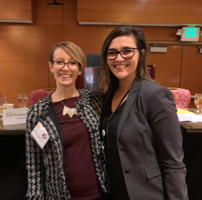 discipline. She told me that she was “drawn to communication theory, which opened up a whole new world.” Kendra encouraged Tiffany to present her original research at the OSCLG Conference during her second year of her master’s. As Tiffany began to consider doctoral programs, Kendra encouraged her to apply to the University of Utah to work with Heather, because Kendra knew Heather would be a wonderful mentor and a good fit. During her first few years in the Utah program, Tiffany worked with Heather, conducting community-engaged research with an area non-profit. What makes Tiffany’s research special is her commitment to social justice and her focus on contributing to the greater community rather than being a “scholar” who restricts their knowledge within the ivory tower. Tiffany now volunteers at the San Diego chapter of the International Rescue Committee, publishes research on tensions and refugee resettlement, and highlights her passion for social justice in all aspects of her scholarship and pedagogy. In our first mentoring meeting, she inspired me from her experiences partnering with the community at the doctoral level to find my own opportunities that connect my research interests in graduate seminar work. What I value most about her mentorship is her holistic approach; she always prioritizes checking in on me, first, as a person, and second as a scholar. I owe a debt of gratitude to all of the mentors who have influenced the ways Tiffany mentors me. I am beyond thankful to have found a mentor like her who encourages me to prioritize taking care of my mental health above all of my research. Tiffany is currently an Assistant Professor in the School of Communication at San Diego State University, where she encourages future scholars (like me!) to focus on the community, set goals outsideof the academy, and focus on making smaller contributions to larger goals along the way.
discipline. She told me that she was “drawn to communication theory, which opened up a whole new world.” Kendra encouraged Tiffany to present her original research at the OSCLG Conference during her second year of her master’s. As Tiffany began to consider doctoral programs, Kendra encouraged her to apply to the University of Utah to work with Heather, because Kendra knew Heather would be a wonderful mentor and a good fit. During her first few years in the Utah program, Tiffany worked with Heather, conducting community-engaged research with an area non-profit. What makes Tiffany’s research special is her commitment to social justice and her focus on contributing to the greater community rather than being a “scholar” who restricts their knowledge within the ivory tower. Tiffany now volunteers at the San Diego chapter of the International Rescue Committee, publishes research on tensions and refugee resettlement, and highlights her passion for social justice in all aspects of her scholarship and pedagogy. In our first mentoring meeting, she inspired me from her experiences partnering with the community at the doctoral level to find my own opportunities that connect my research interests in graduate seminar work. What I value most about her mentorship is her holistic approach; she always prioritizes checking in on me, first, as a person, and second as a scholar. I owe a debt of gratitude to all of the mentors who have influenced the ways Tiffany mentors me. I am beyond thankful to have found a mentor like her who encourages me to prioritize taking care of my mental health above all of my research. Tiffany is currently an Assistant Professor in the School of Communication at San Diego State University, where she encourages future scholars (like me!) to focus on the community, set goals outsideof the academy, and focus on making smaller contributions to larger goals along the way.
As the goal of ORWAC seeks to promotes dialogue, discussion, research, and scholarship concerned with women, feminism, gender, oppression, and social change, I am humbled in this “Ask the Oracle” to share how the mentoring offered by these four women played a role in their respective careers and in my life as well. Perhaps, we together as members of ORWAC, both graduate students and refined scholars, can partner with one another to find mentorship commonalities that unite us as feminist scholars within the organization. In the years to come, I am excited to see how the future generations of organizational communication scholars engage in feminist scholarship and mentoring, and to become a mentor to my own students.
Dr. Patricia Geist-Martin (pgeist@sdu.edu) is a critical-interpretive scholar whose work intersects organizational communication and health communication. Dr. Geist-Martin is Professor of Communication at SDSU. She earned her Ph.D. in Communication from Purdue University in 1985 and has taught at SDSU since 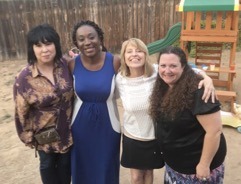
1990. She has conducted research on holistic and integrative medicine in Hawaii, Cuba, Guatemala, Mexico, Costa Rica, and in San Diego. She has published five books and over 100 articles and book chapters. Her research examines narratives and the process of negotiating identity, voice, ideology, & control in organizations, particularly in health and illness. Her most recent book (with Sarah Parsloe) entitled Falling in Love with the Process: Cultivating Resilience through Health Challenges--A Stroke Survivor’s Story, offers a case study of one man’s resilience in recovery from a severe stroke and the advocacy he maintains today. In addition, she is finalizing a manuscript entitled, Tracing Departures, a memoir about how her own experience with departures and disappearances are interwoven with similar encounters faced by her mother and her daughter. Dr. Geist-Martin lives in San Diego with her husband JC and their cat, Stella and dog, Lucy.
Dr. Heather Canary (hcanary@sdsu.edu) is an organizational communication scholar who is interested in teaching leadership and organizational communication, family communication, communication theory, and health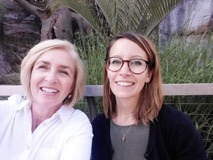
communication. She is the Director of the School of Communication at San Diego State University. Before coming to SDSU, Dr. Canary was a faculty member at Arizona State University and the University of Utah. Her research interests include organizational, family, and health communication. Dr. Canary’s recent projects include interventions to improve surgical team communication and to improve policy communication and compliance at a research university. Her other organization-family communication studies in health contexts have included discharge and hand-off communication at a pediatric hospital, diagnosis and disclosure communication with parents of babies with Down syndrome, and preconception decision making conversations regarding genetic screening. Dr. Canary’s research has been supported by the National Science Foundation and the National Institutes of Health. Dr. Canary lives in El Cajon with her husband, Dan, and their dog, Arty.
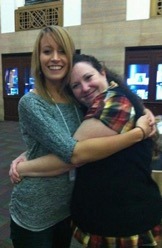
Dr. Kendra Dyanne Rivera (krivera@csusm.edu) is an applied organizational communication scholar who is interested in the communication of identities, emotion and wellness in organizational settings. She is an Associate Professor in the Department of Communication at CSU San Marcos. She received her M.A in Communication from San Diego State University and Ph.D. in Human Communication Arizona State University in 2010. Dr. Rivera uses a variety of qualitative methodologies in her research as well as the classroom. Current research explores mental health in marginalized populations, and has been supported by grants from the National Institutes for Mental Health. During her time at SDSU, she was mentored by Dr. Patricia Geist-Martin. Dr. Rivera lives in San Marcos with her three children and cat, Jeter and dog, Crixus.
Dr. Tiffany Dykstra-DeVette (tdykstradevette@sdsu.edu) is a critical organizational communication scholar who studies organizational communication, critical/cultural studies, and non-profit/social change rhetoric. She earned her M.A. in Communication from Texas Tech University. She also earned a Ph.D. in Communication from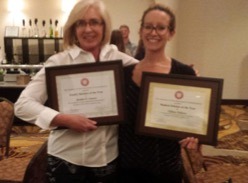 the University of Utah in 2016, where her dissertation advised by Dr. Heather Canary focused on empowerment and tensions in refugee resettlement efforts. She is an Assistant Professor in the School of Communication at San Diego State University. Before coming to SDSU, she was Assistant Professor at West Virginia University. She has published research with Dr. Rivera titled, Cyberactivism or cyberbalkanization? Dialectical tensions in an online social movement in Journal of Social Media Studiesand with Dr. Canary an article titled, Crystalline empowerment: Negotiating tensions in refugee resettlement in Organization Studies. Dr. Dykstra-DeVette lives in La Mesa with her partner Ben and their cat, Pascal and dog, Bosley.
the University of Utah in 2016, where her dissertation advised by Dr. Heather Canary focused on empowerment and tensions in refugee resettlement efforts. She is an Assistant Professor in the School of Communication at San Diego State University. Before coming to SDSU, she was Assistant Professor at West Virginia University. She has published research with Dr. Rivera titled, Cyberactivism or cyberbalkanization? Dialectical tensions in an online social movement in Journal of Social Media Studiesand with Dr. Canary an article titled, Crystalline empowerment: Negotiating tensions in refugee resettlement in Organization Studies. Dr. Dykstra-DeVette lives in La Mesa with her partner Ben and their cat, Pascal and dog, Bosley.
